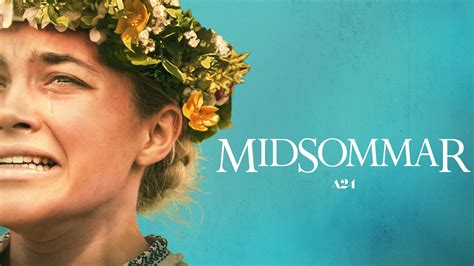On occasion, I’ve made reference to the pleasure I take in watching mysteries on television—mostly British. Some shows please more than others. Grantchester, which I enjoyed for a season or two, lost its savor rather disappointingly to the point of insipidity. When it comes back for its new season, it will grind along without me.
Still, other shows are very good. Thanks to Amazon Prime, Netflix, and Acorn TV, my “mysteries” cup runneth over; I can watch any number of fine mysteries, even some that began airing twenty years ago and are still going strong, just as if they were new—which, in some cases, they are to me: the “Murdoch Mysteries” from Canada, “The Suspicions of Mr. Whicher” (a four-film series), “Lewis,” “Endeavour,” and “Midsomer Murders.”
“Midsomer” may well be my favorite. The series was inaugurated in 1998 and at 122 episodes is still running, albeit with a new cast. Currently, I’m watching shows from 2005, so the lead character DCI Tom Barnaby is played by the engaging John Nettles, who originated the role and bowed out in 2011 in favor of Neil Dudgeon. Barnaby is a shrewd sleuth, but he’s a far cry from Sherlock Holmes. His marriage is happy, his home thoroughly middle-class, his car generic (no red Jaguar for him), and his daughter smart and lovely though no pin-up.
When Barnaby solves a case—inevitably a murder—he must sift a lot of evidence, and although he does his share of sitting and thinking, he’s no armchair detective. There’s a lot of driving and walking around the mythical district of Midsomer, an idyllic English locality on the surface, full of quaint cottages and well-kept gardens but, like Edmund Spenser’s House of Pride, full of corruption behind the façade.
As I said, it’s great stuff, but, like all of the series, however worthy, its writers have their biases, which will bubble to the surface—rather disturbingly in this godless age. In “Midsomer Murders,” although Barnaby himself will show up at a church on Christmas, giving at least a nod to religious practice, for the most part, Christians fair badly in the series.
Take the episode from 2004, “The Straw Woman.” It takes place in a Midsomer village where a schoolteacher has revived, for education purposes, an ancient pagan custom of burning a straw figure of a woman. Turns out a local Anglican associate priest is found inside the effigy burnt to a crisp. An investigation must commence, but it proves to be an investigation into the sorry state of the community.
Among the unsavory details that emerge, we find the associate priest was the homosexual lover of the Reverend Jim Hale. The holier-than-thou Anglican M.D., John Cole, chases at least one young girl in the community, something of a breach of the Hippocratic oath. In addition, a famous pornographer, who has taken up residence locally in a renovated chapel and is, to complicate matters, while dying of cancer finds solace in his companion Agnes who comforts him in ways only a pornographer would appreciate. And Kate Malpas, the local alternative-medicine witch doctress, spends half her time competing with Cole and the other half scoffing at Christianity.
Just how far does the scoffing go? As Barnaby and Sergeant Dan Scott (John Hopkins) interrogate her about the possibility of various remedies being used to sedate the escalating number of victims, Malpas can’t help taking potshots at, as she says, the “Sado-masochistic death cult they offer in church.” To be fair, all religion appears to be the same delusion to her. “There’ll always be people who prefer aspirin to willow bark; they like religion: some people like slurping communion wine; some people like dancing naked around a bonfire.”
To clarify the point, she adds, “All over the world people make piles of stones when they’ve found God. If it gives them comfort, good and well. Personally, I prefer Agnes. If anyone can make death better, she can.” Agnes, you’ll recall, busies herself making the pornographer’s path to imminent death “better.”
The real focus of her rant, or so it seems to me, is the “Sado-masochistic death cult they offer in church.” To drive the point home, when Sergeant Scott later enters a church to scrutinize some ancient records, and, in passing, views a sculpture of a death’s head, he says, “Talk about a death cult.” There is no telling how many people fool themselves when they use such phrase to describe Christianity; certainly, given the sad state of the church in the United Kingdom and the Republic of Ireland, there must be thousands—and, I mean, of those who bother to think about Christianity at all.
In the context of “The Straw Woman,” the notion of Christianity as a sadomasochistic cult is absurd, as anyone who considers the source of the claim. Dr. Malpas (she was a conventional G.P. once) is plainly a grade-A cynic. From her point of view, any means of placing the various pains of existence at arm’s length are fair enough, They may include “slurping communion wine” or “dancing naked around a bonfire,” but, if you consider the range of possible consolations fit for a notorious pornographer, why not a sadomasochistic sex orgy—genuine sado-masochism? Surely, Agnes’ “rituals,” which the good Dr. Malpas prefers, can’t be confined by the limits of conventional male-female relations.
In sum, Malpas’, Agnes’, and Scott’s philosophy is nicely summed up in a verse they’ve probably heard and likely never truly realized is their reigning creed: “Eat, drink, and be merry, for tomorrow we die.” The real “sadomasochistic cult” is much larger than they think; it is, in fact, a good way of describing every manner of life without Christ, including a lot of religions whose practices involve more than dancing naked around bonfires.
There is only one way to life eternal, and that resides in the “very God” who became “very man” who became “sin for us” that we may enjoy life everlasting. Christianity, anything but a “cult of death,” has many doctrines, but, first and last, it revolves around a single point, the risen Christ who is the way, truth, and life, who is risen, and who will come again.
Only a caricature of Christianity — and a bad one at that — could miss the plain doctrinal promises of Christ. He is called the Savior. What he saves us from is death; what he saves us to is life ever full and ever filling. A paradox? Yes. Let’s call it a cult of life and, of course, a mystery.















I was told by someone who lives in the UK that no one believes in God. They only knew two people who did, one is considered eccentric. The propaganda on UK TV is very anti Christian, has been for many years. Now they’ve taught everyone to laugh at Christianity they have to move on to complete atheism. Orwell certainly was a prophet of sorts.
I got hooked; rather reluctantly; on “Midsomer Murders.” Why reluctantly? It’s a good show–but does (at times) portray Christians–and Christianity–in an exaggerated; insulting manner. Not every show. I use the Wilkpedia episode summary, and steer clear of ones that seem anti-Christian. Avoid ones with any mention of “church/vicars/the occult.” The rest are entertaining; but a bit gory at times. (Someone counted all the murders: About two hundred and fifty.) One reviewer quipped that there were “more murders than a Mexican drug cartel.”
If you enjoy British detective drama–I highly recommend “Poirot” with David Suchet. It spans a real thirty years. (There were long breaks between some seasons.) One last recommendation: If you enjoy period pieces; watch the series “Downton Abbey.” It won’t take long to get hooked at all the goings-on. It’s set in pre-WW1. It revolves around the lives of the castle’s aristocracy, and the “hired help.” Very well done.
My husband and I started watching PBS because they offered better shows from BBC . Really got,hooked on a number of shows. They are more real then the junk Hollywood is doing.
Please continue to make more.
I noticed myself that the episodes that have Christian or “religious” characters are quite hostile to Christianity. It is rather insulting. Fortunately (thus far) it’s not terribly too many episodes but if it does become more frequent, I’ll be turning it off just like many, many, others.
I totally agree with you!
This is the one complaint I have about ‘Midsomer Murders’ which troubles me. The writers seem to be using Christianity as the basis of the evil doings in episodes which involve church matters. I wish the writers would concentrate less on writing about religious people being mentally unbalanced evil doers.
I discovered Midsomer Murders in 2008 when I was looking for something to entertain my mother who was recovering from a mastectomy. We started our with the first series which began in 1997. I too noticed how Christians and Christianity is regarded negatively, from rolling their eyes when someone mentions God, from laughing at a Christian’s opinion, and a serial killer of a vicar, to name a few.
Let me be clear, I don’t mind a murderous vicar because after hundreds of episodes, there’s been a killer from every career field so why not vicars as well. My problem is that Christianity is the ONLY religion they make fun of. Can you image the writers making fun of Jews? Well the whole world would call them anti-semitic and have the show cancelled. And what if they made fun of the Prophet Mohammed or Allah? How long do you think the writers would live for? A week – a day? You know what happened at Charlie Hebdo in Paris, don’t you? Go ahead, make fun of religion but ensure it’s ALL religions.
And these days Tom Barnaby’s replacement. John Barnaby (he and his wife could never really replace Tom and Joyce) takes things even further by being an atheist. SMDH. Oh how the mighty have fallen. But its better than no Midsommer Murders at all.